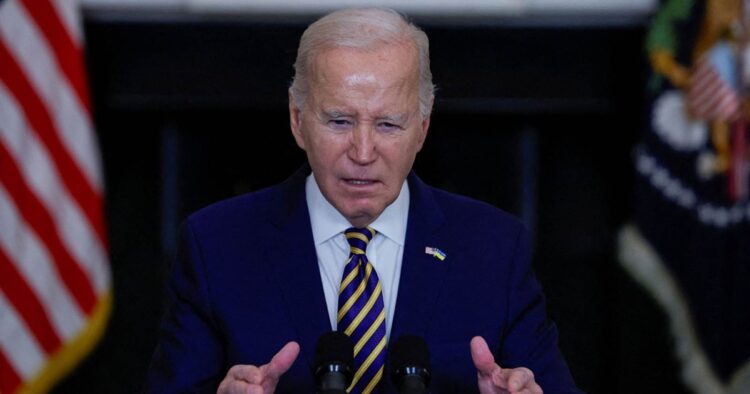US President Joe Biden’s recent remarks for Bharat, China, Japan, and Russia as “xenophobic” have sparked controversy and drawn sharp criticism. At a fundraising event, Biden attributed the economic struggles of these nations to their purported reluctance to accept immigrants.
Biden’s labeling of these nations as “xenophobic” due to their immigration policies has not been well-received. His comments, made at a fundraising event, have raised eyebrows, particularly given the ongoing immigration challenges within the United States.
Despite Biden’s claims, Bharat’s economy is projected to grow at a robust rate of 6.8% amid predictions of a global economic slowdown in 2024. This growth contradicts the narrative of xenophobia stifling economic progress and underscores the need for a nuanced understanding of the factors driving economic development.
Biden’s assertion that the economic growth of these countries is hampered by xenophobia seems misplaced, especially when considering the complexities of immigration policies and economic factors at play.
The International Monetary Fund (IMF) predicts a global economic slowdown in 2024, with varying growth rates across different regions. While developing countries like Bharat are expected to experience robust progress, concerns about irregular immigration have escalated, particularly in the United States.
Further, it’s ironic that these statements come from a president whose own country grapples with significant immigration issues, as highlighted by the persistent problem at the US-Mexico border.
The US itself has been facing a surge in illegal immigration, with concerns mounting over the government’s handling of the situation.
Public opinion reflects widespread dissatisfaction with the government’s response to the influx of asylum seekers, indicating a failure to effectively manage immigration matters domestically.
It’s noteworthy that immigration has emerged as a key issue in the 2024 US presidential campaign, underscoring its importance in American politics. Despite Biden’s criticism of his predecessor’s stance on immigration, the current administration has struggled to address the challenges effectively, as evidenced by public discontent and partisan divides.
The Biden administration’s attempts to lecture other countries on xenophobia while grappling with its own immigration crisis appear hypocritical. A president who cannot adequately manage issues within his own country lacks the credibility to admonish others on similar matters.
The focus should be on addressing internal challenges before casting aspersions on other countries’ policies. Biden’s recent remarks regarding xenophobia in other nations ring hollow in light of the immigration challenges plaguing the United States.
A leader’s credibility in addressing such issues abroad hinges on their ability to effectively manage them at home. Until the US can demonstrate competence in handling its own immigration issues, criticisms of other countries’ policies may be seen as unwarranted and hypocritical.

















Comments